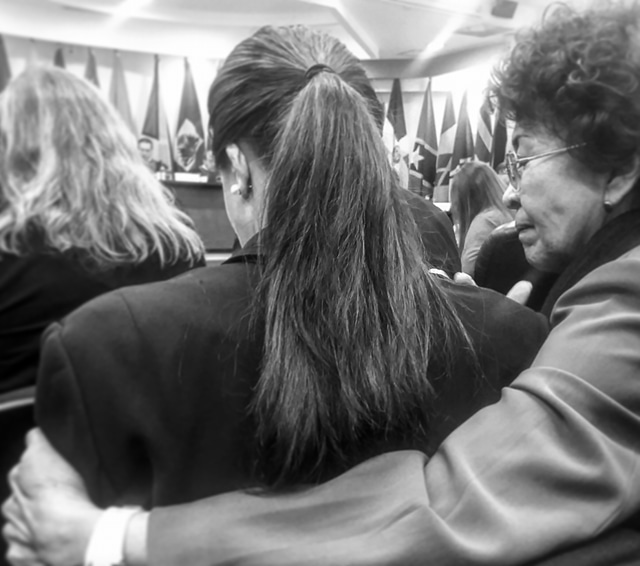






Caracas y San José, 6 de febrero, 2018.- In what constituted the first case of a Venezuelan woman, victim of gender violence, presented before the Inter-American Court of Human Rights, Linda Loaiza denounced the sexual violence and torture she suffered 17 years ago in her country and the violation of her rights through judicial processes plagued by irregularities, re-victimization, and gender stereotyping.
“I am the reflection of physical, sexual and psychological violence that women face. I am here to raise my voice, which is the voice of many women in Venezuela and Latin America who have not been able to claim justice for violations of their rights,” said Linda, “I think that here, at the Inter-American Court, I will be given the justice that was denied to me in Venezuela, a fair justice.”
On March 27, 2001, when she was just 18 years old, Loaiza was deprived of her freedom. During her captivity, she was sexually abused, beaten and threatened with death. After more than three months, on July 19th, Loaiza managed to escape. Despite the fact that her body showed signs of torture, she was re-victimized through a judicial process plagued with irregularities and gender stereotypes.
“The mere act of being heard at an International Human RIghts Tribunal has been restorative for Linda,” said Elsa Meany, a senior attorney with the Center for Justice and International Law, CEJIL. “The Court can advance even more with this reparation process by issuing a decision that orders the Venezuelan state to recognize the problem of gender-based violence and take measures to guarantee the non-repetition of similar acts.”
Linda’s case is emblematic, illustrative of the institution violence and re-victimization that women experience in Venezuela. According to the UN Committee on Gender and Discrimination Report issued in 2014, violence against women and girls “is widespread and growing.” Also, according to the 2014 Annual Report of the Public Ministry, of the 70,763 complaints of violence against women, only 0.7% have come to trial. However, these figures have not been updated and there is no transparency about the lack of information.
“Linda has championed debates and changes in order to guarantee the right to live free of violence for all women in Venezuela,” said Liliana Ortega, lawyer from the Committee of Relatives of the Victims of the events that took place between February 27 and the first days of March 1989 (COFAVIC). “She is an example of courage, resilience and persistence, and a defender of women’s rights who deserves recognition inside and outside of Venezuela.”
Linda and her representatives asked the Court to rule against the Venezuelan state, ordering a full reparation to Linda and her relatives; the publication of disaggregated data on gender-based violence to be accessible to the public and reveal the prevalence of crimes associated with gender-based violence and its prosecution by the penal system; and to design, in coordination with civil society and victims, protocols to guide the criminal investigation of complaints of sexual violence and to guide proper medical attention. The sentence is expected to be published between six months to one year, but prior to that, the defense and the Venezuelan state will have one month to develop their arguments.
Help us continue this critical and urgent work with a donation!
DONATE NOW